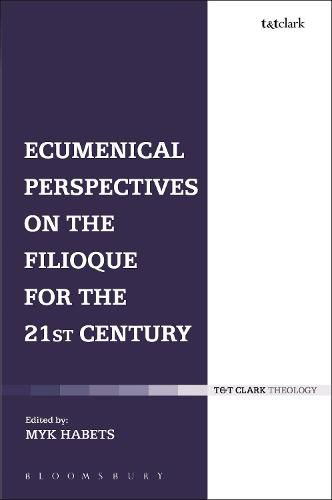Readings Newsletter
Become a Readings Member to make your shopping experience even easier.
Sign in or sign up for free!
You’re not far away from qualifying for FREE standard shipping within Australia
You’ve qualified for FREE standard shipping within Australia
The cart is loading…






The volume presents a range of theological standpoints regarding the filioque. With some contributors arguing for its retention and others for its removal, still others contest that its presence or otherwise in the Creed is not what is of central concern, but rather that how it should be understood is of ultimate importance. What contributors share is a commitment to interrogating and developing the central theological issues at stake in a consideration of the filioque, thus advancing ecumenical theology and inter-communal dialogue without diluting the discussion. Contributors span the Christian traditions: Roman Catholic, Protestant, Eastern Orthodox, and Pentecostal. Each of these traditions has its own set of theological assumptions, methods, and politics, many of which are on display in the essays which follow. Nonetheless it is only when we bring the wealth of learning and commitments from our own theological traditions to ecumenical dialogue that true progress can be made. It is in this spirit that the present essays have been conceived and are now presented in this form.
$9.00 standard shipping within Australia
FREE standard shipping within Australia for orders over $100.00
Express & International shipping calculated at checkout
The volume presents a range of theological standpoints regarding the filioque. With some contributors arguing for its retention and others for its removal, still others contest that its presence or otherwise in the Creed is not what is of central concern, but rather that how it should be understood is of ultimate importance. What contributors share is a commitment to interrogating and developing the central theological issues at stake in a consideration of the filioque, thus advancing ecumenical theology and inter-communal dialogue without diluting the discussion. Contributors span the Christian traditions: Roman Catholic, Protestant, Eastern Orthodox, and Pentecostal. Each of these traditions has its own set of theological assumptions, methods, and politics, many of which are on display in the essays which follow. Nonetheless it is only when we bring the wealth of learning and commitments from our own theological traditions to ecumenical dialogue that true progress can be made. It is in this spirit that the present essays have been conceived and are now presented in this form.